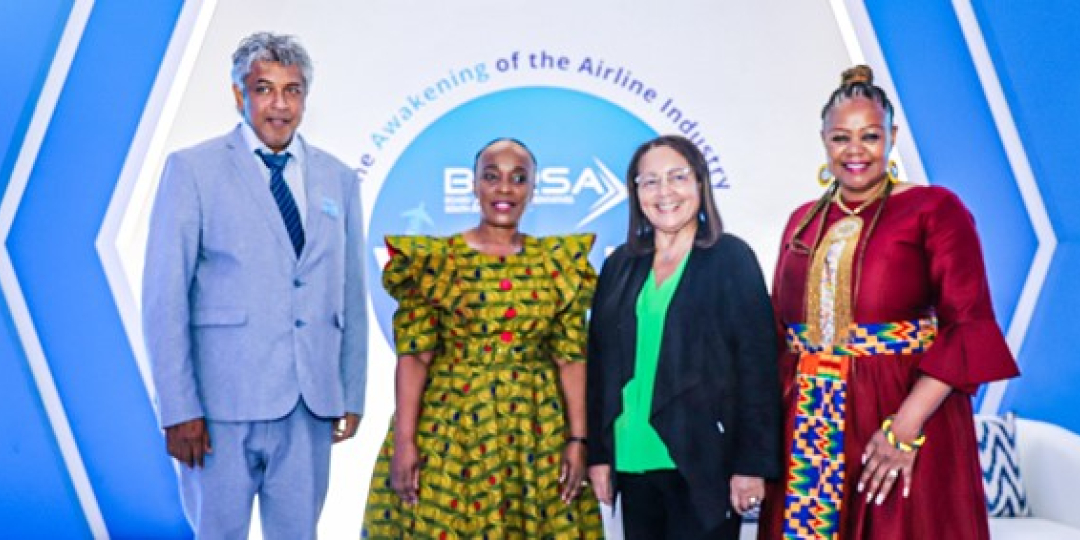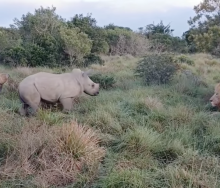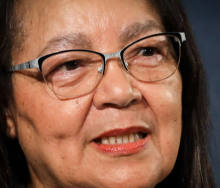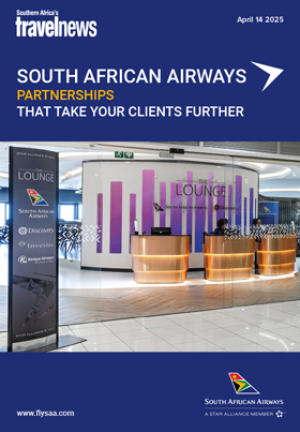The new Minister of Transport, Sindisiwe Chikunga, and new Tourism Minister, Patricia de Lille, have pledged their support to help grow aviation in South Africa and to iron out regulatory kinks. This will also encourage more international and domestic tourism in the country.
Both ministers addressed the Board of Airline Representatives in South Africa (Barsa) last week during the association’s annual conference, which was held at Century City Convention Centre in Cape Town on March 9 and 10.
The theme was ‘Vulindlela’, a Zulu word meaning ‘to open the way’.
Clearing roadblocks
Barsa represents international airlines with a presence in South Africa – and a delegation of high-level executives of airline and aviation partners from Africa and the world were in Cape Town for the event.
The conference programme included a briefing by Barsa’s executive and heads of both national transport and tourism departments. Panel discussions debated ways to enable aviation and tourism, the practicalities of sustainable jet fuels and where this could be stored, what is needed to put South Africa on a sustainable path, how to attract more domestic and international visitors, structural relief, regulatory red tape, the country’s economic recovery, and opportunities for air cargo.
Multiple stakeholders appealed to the Minister of Transport to get the development of South Africa’s e-visa programme across the finish line.
Thabi Leoka, a local economist with experience in aviation, warned that South Africa’s growing unemployment rate and low levels of higher learning could shrink the passenger market in the long-term by diminishing the number of South Africans who can afford to travel.
Afzal Parambil, Emirates Regional Manager Southern Africa and Barsa Director, appealed to the Transport Minister to re-classify OR Tambo so that it might be exempted from loadshedding, which he identified as a real challenge for airlines.
Resilience
Barsa Chairperson, Fouad Caunhye, Qatar Airways Regional Manager, said: “Like the rest of the world, we awakened to a new world in 2020. Foresight not only means distinguishing signals from noise and better preparing ourselves, but also preparing ourselves for resilience.”
According to Caunhye, no fewer than 64 airlines around the world ceased operations during the COVID-19 pandemic, including South African brands like kulula.com and Comair, while at least 2,3m jobs were lost in the wider industry. Now travellers have taken advantage of the world’s reopening and demand for travel is back.
Speaking after a riveting conference opening, George Mothema, Barsa CEO, told Travel News: “We decided to adopt the concept of vulindlela from within the president’s office. We ask ‘How do we awaken the aviation sector? What are the things we can do as a sector?’ The aim of the conference is to put things we can do, as the private sector, on the table and propose solutions to some of the challenges that we face and foster a better relationship between the public and private sectors.”
Permits
Mothema said delays around permit applications were one example. “In other parts of the world, a permit can take two weeks. In South Africa, the wait is two to three months. All these processes need to be synchronised to make them more efficient.”
He said the ministers’ presence was strategic and he felt future co-operation was vital. “As a means of bringing tourists into this country, there are certain headaches that we (as foreign airlines) need to address. We need co-operation.”
Ministers’ debut
The attendance of two ministers from portfolios that are so closely linked was extremely well received by conference delegates.
Tebogo Tsimane, SAA CCO, said the important issues had been clearly identified, but an agenda, or aviation roadmap was needed to overcome them. “We are talking shop. What we need the most out of gatherings like this is agreement that things are going to be done, and we need to follow up.”
Tsimane added that one of the urgent items needing to be addressed was the security of energy, and infrastructure that works at the hub airport, the most important airport in the country, Johannesburg. Another urgent theme was multi-national regulations, such as those in SAATM countries.
Otto de Vries, CEO of Asata, said: “The content is relevant and the discussion points certainly show clear alignment for all stakeholders in the value chain. While the focus is on aviation, we all understand that we are part of a bigger picture and a bigger process. It is super-encouraging to not only have had the Minister of Transport here, and to see her actively participating and keeping herself involved, but to also have had our new Minister of Tourism here.”
Tshifhiwa Tshivhengwa, CEO of the Tourism Business Council of South Africa, agreed that the conference had been positive and said the commitment from both ministers attending was a great sign.
Although Barsa represents international airlines, Tshivhengwa was also happy to witness discussions on the development of domestic travel.
“Travel and tourism are enabled by aviation,” he said. “For the numbers we are looking for, in terms of growing our international arrivals and reaching the targets we talk about, we need connectivity. That’s why we are also talking about issues around national air access. This is so that we can connect all other places around the country with all other international destinations as well as domestic airports. It has been a positive conference. The team at Barsa have done well.”















